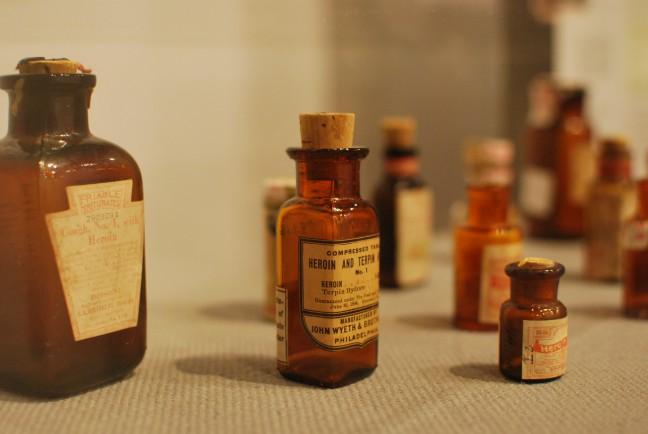A bill to make anti-overdose medication more readily accessible passed on a unanimous bipartisan voice vote in Tuesday’s Assembly session.
Rep. John Nygren, R-Marinette, author of the bill, said in the session over the recent Halloween weekend, there were six overdose deaths in Milwaukee within a 24-hour period.
He said this issue is timely since naloxone, an anti-opioid overdose medication, could have saved the lives of those six who overdosed.
“Putting more naloxone availability into the hands of people in the state of Wisconsin is definitely going to be a valuable tool,” Nygren said at the session.
Aleksandra Zgierska, University of Wisconsin School of Medicine and Public Health professor, said this bill would make it easier for people to have access to naloxone.
“What we hope is … that it would expand the availability of this life saving medication,” Zgierska said.
Naloxone is a drug that prevents death if administered during a heroin or opioid overdose, Zgierska said.
Wisconsin attorney general aims to address high number of opioid overdoses
The bill is part of the Nygren’s Heroin, Opiate Prevention and Education bill package to fight heroin and prescription drug abuse in Wisconsin.
Gov. Scott Walker recently signed seven HOPE agenda bills into law, according to a release from Nygren.
Under current law, Zgierska said physicians are not allowed to give anti-overdose drugs to patients without a specific prescription.
The new bill would allow physicians to let pharmacists give naloxone to patients without prescriptions, as long as patients are trained to properly take the medication, Zgierska said.
One of the biggest issues regarding overdose problems in the state, Zgierska said, is the stigma attached to addiction that makes people ashamed to seek care.
Without specific patient prescriptions, addicts are more likely to seek help and obtain naloxone, Zgierska said.
The bill would also allow friends and family members of addicts to obtain anti-heroin overdose medicines, as long as they receive training to properly administer them, Zgierska said. This would ensure family members have the opportunity to save someone they feel is at risk of heroin overdose, she explained.
Zgierska said those who may be in opposition to this bill say naloxone doesn’t actually treat heroin addiction. But she said even if it doesn’t treat addiction, it keeps addicts alive so they can seek treatment.
Prescription drugs cause more deaths than breast cancer, car crashes in state
“If a person dies, then there’s for sure no treatment for addiction,” Zgierska said. “It might be a compromise … to help people stay alive, so they can enter addiction treatment.”
Zgierska said making naloxone more accessible isn’t just about treating heroin addiction. Anti-opioid drugs also help save people who accidentally overdose on prescribed pain medications, which are also classified as opioids, Zgierska said.
Attorney General Brad Schimel announced a “Dose of Reality” campaign in September, aiming to raise awareness for prescription drug and opioid abuse in the state.
“This is truly a public health crisis, and one that can be eliminated through sharing information about the risks involved in misusing these medications,” Schimel said in a statement.
The bill has been sent to Walker’s office to be signed.













